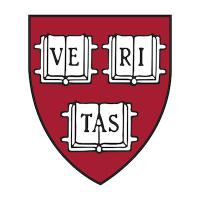What do they do?
Plan, direct, or coordinate activities in such fields as life sciences, physical sciences, mathematics, statistics, and research and development in these fields.
Also known as:
Analytical Services Manager, Chemical Engineer Supervisor, Chemical Process Exploration Manager, Environmental Program Manager, Lab Manager (Laboratory Manager), Natural Sciences Manager, Ocean Program Administrator, Research Administrator, Research and Development Director (R and D Director), Research Director, Research Manager, Water Team Leader
-
5.7%
Change
Select a state to see its job growth rate ranking6,000Job Openings
Select a state to see its net job growth ranking
-
Harvard University
Cambridge, MA
-
University of Chicago
Chicago, IL
-
Stanford University
Stanford, CA
-
Johns Hopkins University
Baltimore, MD
-
Emory University
Atlanta, GA
Looking for colleges that offer a specific major? Use the College Match Tool to find your best-matched schools and discover your estimated Net Price!
- Doctorate or Professional Degree (20%)
- Master's degree (34%)
- Bachelor's degree (37%)
- Associate's degree (4%)
- Some college, no degree (3%)
- High school diploma equivalent (2%)
- Less than high school diploma (<1%)
Most Popular Majors that prepare Natural Sciences Managers
-
#1
-
Degrees Granted
79,503
-
Female Students
53,804
-
Male Students
25,699
-
Median Starting Salary
$40,800
-
-
#2
-
Degrees Granted
17,028
-
Female Students
7,052
-
Male Students
9,976
-
Median Starting Salary
$54,000
-
-
#3
-
Degrees Granted
12,596
-
Female Students
6,961
-
Male Students
5,635
-
Median Starting Salary
$45,700
-
-
#4
-
Degrees Granted
9,290
-
Female Students
6,486
-
Male Students
2,804
-
Median Starting Salary
$42,090
-
-
#5
-
Degrees Granted
9,112
-
Female Students
5,262
-
Male Students
3,850
-
Median Starting Salary
$44,700
-
People in this career often have these skills:
- Science - Using scientific rules and methods to solve problems.
- Reading Comprehension - Understanding written sentences and paragraphs in work-related documents.
- Active Listening - Giving full attention to what other people are saying, taking time to understand the points being made, asking questions as appropriate, and not interrupting at inappropriate times.
- Critical Thinking - Using logic and reasoning to identify the strengths and weaknesses of alternative solutions, conclusions, or approaches to problems.
- Monitoring - Monitoring/Assessing performance of yourself, other individuals, or organizations to make improvements or take corrective action.
- Writing - Communicating effectively in writing as appropriate for the needs of the audience.
- Speaking - Talking to others to convey information effectively.
- Complex Problem Solving - Identifying complex problems and reviewing related information to develop and evaluate options and implement solutions.
- Judgment and Decision Making - Considering the relative costs and benefits of potential actions to choose the most appropriate one.
- Management of Personnel Resources - Motivating, developing, and directing people as they work, identifying the best people for the job.
- Active Learning - Understanding the implications of new information for both current and future problem-solving and decision-making.
- Learning Strategies - Selecting and using training/instructional methods and procedures appropriate for the situation when learning or teaching new things.
- Social Perceptiveness - Being aware of others' reactions and understanding why they react as they do.
- Coordination - Adjusting actions in relation to others' actions.
People in this career often know a lot about:
- Biology - Knowledge of plant and animal organisms, their tissues, cells, functions, interdependencies, and interactions with each other and the environment.
- English Language - Knowledge of the structure and content of the English language including the meaning and spelling of words, rules of composition, and grammar.
- Administration and Management - Knowledge of business and management principles involved in strategic planning, resource allocation, human resources modeling, leadership technique, production methods, and coordination of people and resources.
- Computers and Electronics - Knowledge of circuit boards, processors, chips, electronic equipment, and computer hardware and software, including applications and programming.
- Administrative - Knowledge of administrative and office procedures and systems such as word processing, managing files and records, stenography and transcription, designing forms, and workplace terminology.
- Chemistry - Knowledge of the chemical composition, structure, and properties of substances and of the chemical processes and transformations that they undergo. This includes uses of chemicals and their interactions, danger signs, production techniques, and disposal methods.
- Mathematics - Knowledge of arithmetic, algebra, geometry, calculus, statistics, and their applications.
People in this career often have talent in:
- Written Comprehension - The ability to read and understand information and ideas presented in writing.
- Oral Comprehension - The ability to listen to and understand information and ideas presented through spoken words and sentences.
- Oral Expression - The ability to communicate information and ideas in speaking so others will understand.
- Written Expression - The ability to communicate information and ideas in writing so others will understand.
- Deductive Reasoning - The ability to apply general rules to specific problems to produce answers that make sense.
- Inductive Reasoning - The ability to combine pieces of information to form general rules or conclusions (includes finding a relationship among seemingly unrelated events).
- Information Ordering - The ability to arrange things or actions in a certain order or pattern according to a specific rule or set of rules (e.g., patterns of numbers, letters, words, pictures, mathematical operations).
- Problem Sensitivity - The ability to tell when something is wrong or is likely to go wrong. It does not involve solving the problem, only recognizing that there is a problem.
- Category Flexibility - The ability to generate or use different sets of rules for combining or grouping things in different ways.
- Speech Clarity - The ability to speak clearly so others can understand you.
- Near Vision - The ability to see details at close range (within a few feet of the observer).
- Speech Recognition - The ability to identify and understand the speech of another person.
- Originality - The ability to come up with unusual or clever ideas about a given topic or situation, or to develop creative ways to solve a problem.
People in this career often do these activities:
- Evaluate employee performance.
- Supervise employees.
- Hire personnel.
- Develop organizational methods or procedures.
- Direct organizational operations, projects, or services.
- Develop operating strategies, plans, or procedures.
- Manage operations, research, or logistics projects.
- Monitor animal behavior or condition.
- Advise others about land management or conservation.
- Analyze data to inform operational decisions or activities.
- Prepare operational progress or status reports.
- Coordinate operational activities with external stakeholders.
- Communicate organizational information to customers or other stakeholders.
- Establish interpersonal business relationships to facilitate work activities.
- Develop organizational goals or objectives.
- Prepare proposals or grant applications to obtain project funding.
- Implement organizational process or policy changes.
- Develop organizational policies or programs.
- Manage human resources activities.
- Recruit personnel.
- Approve expenditures.
- Prepare financial documents, reports, or budgets.
- Prepare operational budgets.
- Conduct research of processes in natural or industrial ecosystems.
- Conduct research to gain information about products or processes.
- Conduct employee training programs.
- Present information to the public.
- Advise others on legal or regulatory compliance matters.
This page includes data from:

 Occupation statistics: USDOL U.S. Bureau of Labor Statistics Occupational Employment Statistics
Occupation statistics: USDOL U.S. Bureau of Labor Statistics Occupational Employment Statistics
 Videos: CareerOneStop, USDOL/ETA and the Minnesota Department of Employment & Economic Development
Videos: CareerOneStop, USDOL/ETA and the Minnesota Department of Employment & Economic Development









